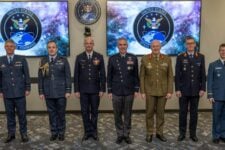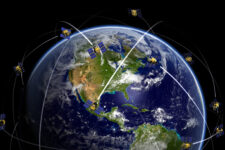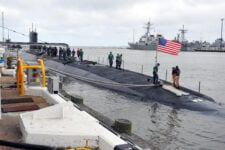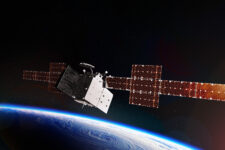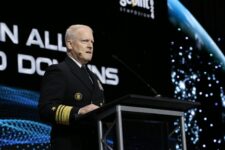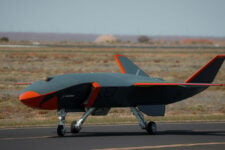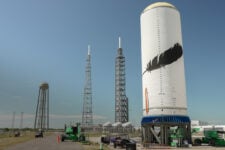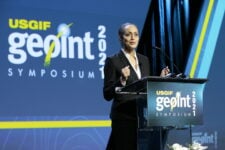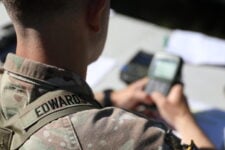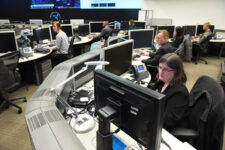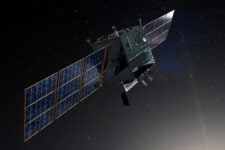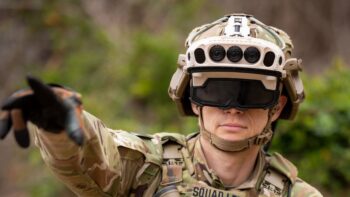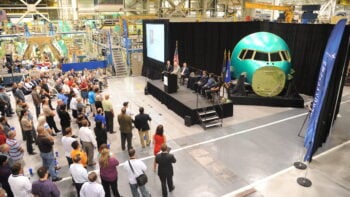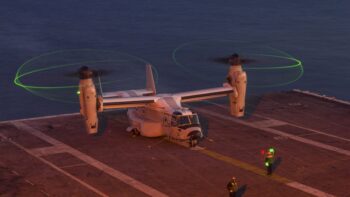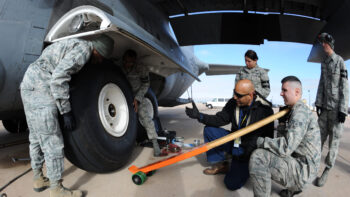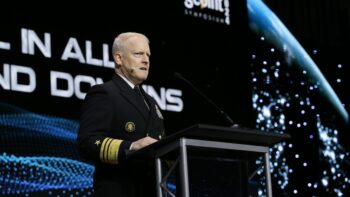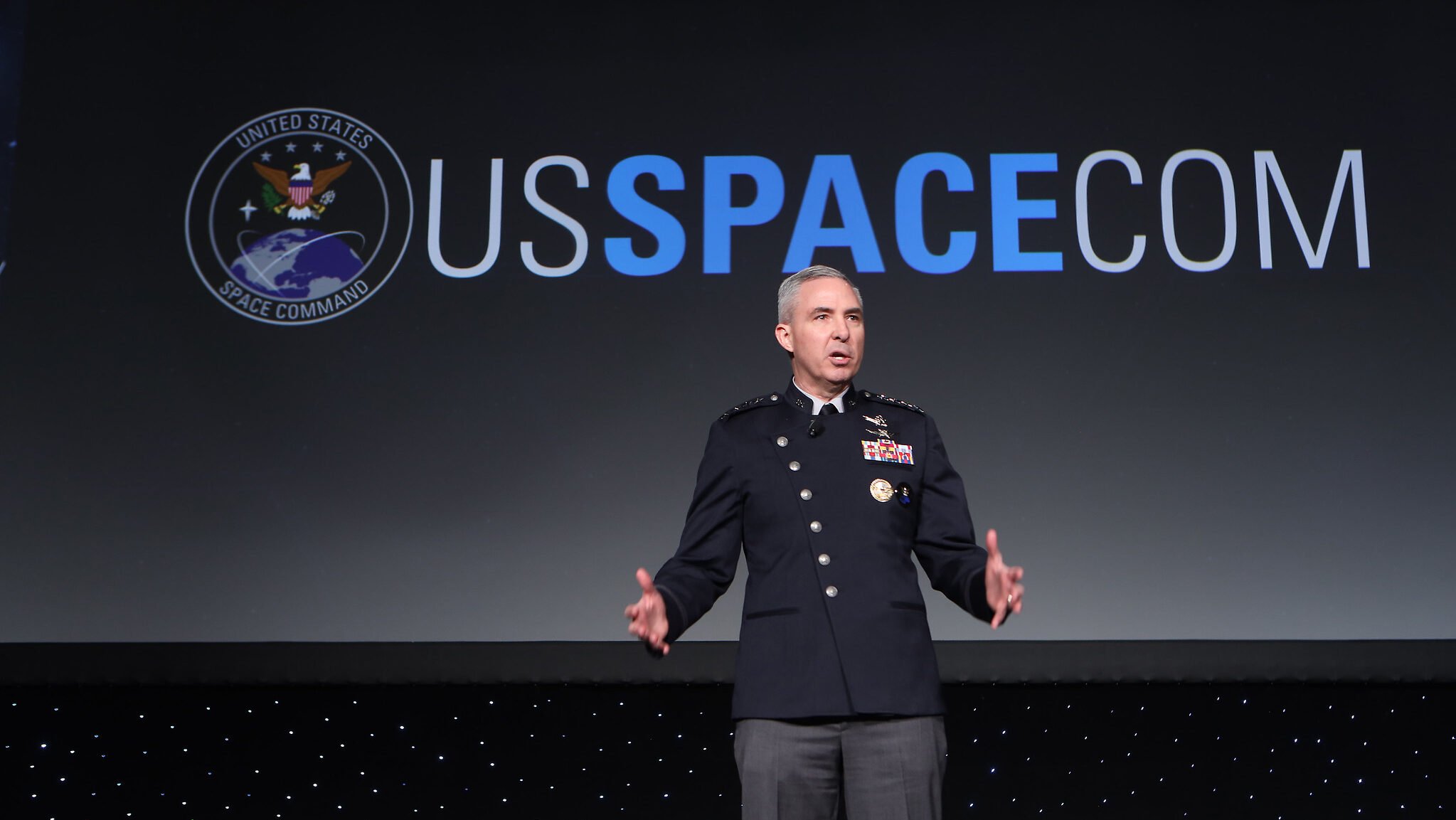
US SPACECOM Commander Gen. Stephen Whiting addresses Space Symposium 2024. (Space Foundation via Flickr)
SPACE SYMPOSIUM 2024 — Over the last six months, China has “proactively” reached out to the US “on two things they wanted to talk to us about with space safety related issues,” the head of US Space Command said Tuesday.
“We think that is very positive and we would like to continue to build on that,” Gen. Stephen Whiting told reporters following his keynote address here at the 2024 Space Symposium in Colorado Springs.
Whiting said the US routinely shares data on potential orbital collisions with adversaries like Russia and China, and acknowledged Beijing doesn’t always respond to the American outreach — though there are exceptions like the two instances to which the general alluded.
It’s unclear precisely when the two approaches took place, but the steps come amid a thawing of tensions between Washington and Beijing over the last several months, at least when it comes to military-to-military communications, after what senior US military officials called a troubling freeze.
RELATED: Biden launches AI ‘risk and safety’ talks with China. Is nuclear C2 a likely focus?
For space operations, US officials have long emphasized that close international collaboration on orbital data is crucial to head off possible collisions, known as “conjunctions,” since debris could threaten any countries’ satellites in a given orbit. To that end, “[w]e would love to have a regular path to share safety data” with China, Whiting said.
Olympic Defender Invites More Defenders
In his speech earlier in the day, Whiting revealed new steps to deepen international cooperation with allies and partners. For example, Whiting on Tuesday inked an agreement with the Uruguayan Air Force to share space situational awareness data, supplementing what SPACECOM said in a press release is “more than” 185 SSA agreements with allies and partners, academia, commercial vendors and other foreign organizations.
Additionally, Whiting announced that Operation Olympic Defender — a US-led initiative consisting of Australia, Canada and the United Kingdom to coordinate space operations and deter adversaries — invited Germany, France and New Zealand to join the group. Asked by Breaking Defense whether he anticipated that the three would accept the invite, Whiting replied he “won’t presume what their timeline is or what their decision will be, but I look forward to a positive outcome here at some point in the near future.”
Elsewhere in his keynote, Whiting announced that eight new unnamed companies had been invited to join SPACECOM’s commercial integration cell at Vandenberg Space Force Base, where the vendors can share information on their own space systems and access classified data on potential threats. And, Whiting said, a simulation tool dubbed the Capability Assessment and Validation Environment (CAVE) achieved minimum viable capability, aiding SPACECOM’s analysis and warfighting plans.
CAVE, which Whiting explained is essentially an office consisting of a simulation platform and accompanying experts located at SPACECOM’s facilities in Colorado Springs, doesn’t have a planned full operational capability date yet. However, Whiting said its requirements have mostly been established and that CAVE can help accomplish some modeling tasks in its infancy.
“[W]e’ve kind of established what those requirements are, and at full operational capability we’ll be able to assess all of our operations at all classification levels. Today, we can do a subset of that, and it’s an important subset, but we still need to grow that. But I think we’re on a good path,” he said.
